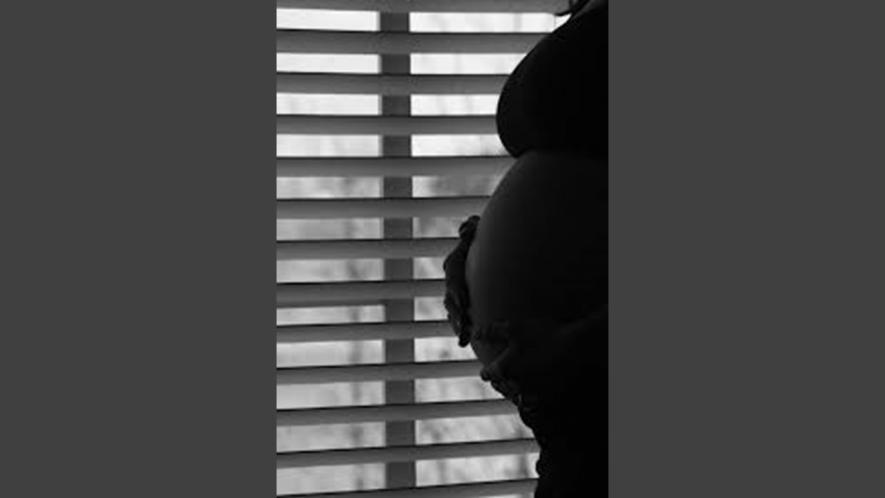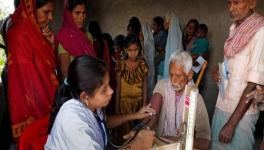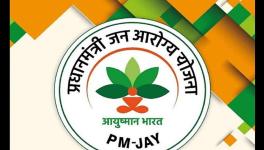1.85 Million Abortions Have Been Compromised in India During Lockdown: Study

Representational image. | Image Courtesy: PxHere
An estimated 1.85 million Indian women could not terminate an unwanted pregnancy in the last three months, concluded a recent modelling study conducted by the Ipas Development Foundation (IDF), India, a non-profit dedicated to preventing and managing unwanted pregnancies. In the first three months of the COVID-19 lockdown, between March 25 and June 24, 2020, 47% of the estimated 3.9 million abortions that would have likely taken place in India in this span under normal circumstances were possibly compromised.
According to the study, of these 1.85 million women, 1.5 million, that is, 80% of the compromised abortions were due to the unavailability of medical abortion drugs at pharmacy stores. Another 20%, or almost 3,70,000 abortions, were compromised due to lack of access to facilities, of which 16% were due to reduced access to private health facilities and 4% to public health facilities. The study pointed out that of the estimated 15.6 million abortions that happen in India annually, 73% are through drugs accessed outside facilities, 16% in private health facilities, 6% in public health facilities and 5% through traditional unsafe methods, according to a 2015 study published in The Lancet.
The study used data from telephone surveys of 509 public-sector facilities across eight states, 52 private-sector providers, expert opinion of members of the Federation of Obstetric and Gynaecological Societies of India (FOGSI), sales data on medical abortion drugs, and trend estimation by pharmaceutical industry experts. The estimation took into consideration two key parameters: the degree of restriction at the point of care and dynamic changes in the level of public restrictions over the period.
It said, “Despite abortion being designated as an ‘essential service’, there are several barriers to access. While movement restrictions and suspension of transport facilities limited women’s mobility to access facilities or chemist outlets, there has also been a shift in focus of the public health system. Public health facilities are either converted to COVID-19 treatment centers or the facility staff is redeployed from regular duties to COVID-19 care. Moreover, closure of private health facilities due to provider unavailability and lack of protective gear and disruption in supply chain of medical abortion drugs at both chemist outlets and facilities are other key drivers.”
The factors that have affected women’s access to contraceptives during the lockdown are similar to the ones that restricted their access to abortion: conversion of public health facilities to COVID-19 care centres limited the availability of sexual and reproductive health (SRH) services, clinical staff occupied with the COVID-19 response may not have had the time or the opportunity to provide services or may have lacked personal protective equipment to provide services safely, most of the private health facilities were either closed or limited their service provision due to provider unavailability, inadequate protective gear, or lack of mandatory COVID-19 testing arrangements, supply chain disruptions limited availability of contraceptives and stock-outs of many contraceptive methods, suspension of public transport facilities and curbs on movement restricted women’s mobility.
The study said, “In the Indian context, accessing an abortion at an approved facility is challenging and becomes even more difficult for services beyond 12 weeks. However, given the impact of COVID-19, facility-based first or second trimester abortion may be the only option for majority of the 1.85 million women. It is therefore imperative to gear up the health system to ensure it can meet the evolving needs of women.”
IDF made several recommendations, including rapid mapping of facilities (both public and private) to identify geographic distribution of those offering first or second-trimester abortion, assessment of facility preparedness—both public and private—and strengthening abortion services, especially second-trimester abortions, informing women and partners about availability of services, strengthening referral linkages to enable women seeking an abortion to access safe, legal services, streamlining the supply chain and ensuring the availability of medical abortion drugs and contraceptives, and inclusion of mechanisms to offset additional travel and out-of-pocket expenditure. It added, “Most importantly, we need continued advocacy with government and key stakeholders to prioritize the need to rapidly restore abortion services with focus on shifting needs of women.”
Also watch: ICMR's Vaccine Fiasco: What Does August 15 'Deadline' Imply?
Get the latest reports & analysis with people's perspective on Protests, movements & deep analytical videos, discussions of the current affairs in your Telegram app. Subscribe to NewsClick's Telegram channel & get Real-Time updates on stories, as they get published on our website.
























